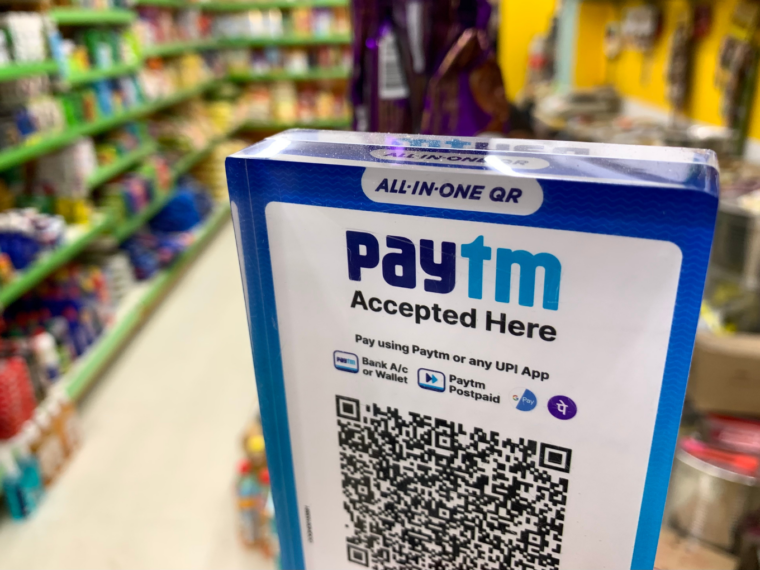In a strategic move to consolidate their position in the rapidly evolving Unified Payments Interface (UPI) landscape, Paytm, the renowned digital payment platform, and Axis Bank, a leading private sector lender, are set to submit a joint application as a third-party application provider (TPAP) with the National Payments Corporation of India (NPCI) this week. This pivotal collaboration aims to navigate the challenges posed by recent regulatory restrictions and further propel their UPI business.

The Paytm-Axis Bank Nexus: A Paradigm Shift in UPI Dynamics
In-depth UPI Discussions with NPCI
Over the past few days, representatives from Paytm and Axis Bank have engaged in extensive discussions with NPCI, the regulatory body overseeing UPI operations. The imminent submission of the formal application, supported by a signed intent to collaborate, underscores the commitment of both entities to swiftly navigate the approval process.
Multipronged Bank Collaborations
While the collaboration with Axis Bank takes center stage, Paytm is concurrently exploring discussions with other key players in the banking sector. Ongoing negotiations with Yes Bank, HDFC Bank, ICICI Bank, and Canara Bank highlight Paytm’s proactive approach to forge strategic alliances, positioning itself as a formidable force in the UPI domain.
A Response to RBI Restrictions
Resilience Amidst Regulatory Constraints
Following stringent restrictions imposed by the Reserve Bank of India (RBI) on Paytm Payments Bank Limited (PPBL), an associate company of One97, Paytm has demonstrated resilience by seeking strategic bank partnerships to sustain its UPI business. RBI’s directives have compelled PPBL to cease all banking services, except for the withdrawal of remaining funds, necessitating a swift adaptation to a new operational framework.
Transformative Partnership with Axis Bank
In a transformative move, Paytm has entered into a strategic partnership with Axis Bank, marking a significant shift in its operational structure. This collaboration involves the transfer of all nodal accounts maintained by PPBL to Axis Bank, signaling a strategic realignment of resources and capabilities.
Shaping the Future: Paytm’s Transition to a TPAP
TPAP Status: A Game-Changer
Upon NPCI’s approval, Paytm is poised to assume the role of a TPAP, mirroring its competitors like PhonePe, Google Pay, Cred, and Amazon Pay. This transition necessitates Paytm’s dependence on PSP banks for seamless UPI transactions, thereby ensuring speed, efficiency, and minimal payment failures.
Mitigating Risk Through Strategic Alliances
Recognizing the intricacies of UPI transactions, Paytm is strategically aligning itself with multiple banks to minimize risk. This strategic approach, in line with industry leaders like PhonePe and Google Pay, aims to ensure operational resilience and elevate the overall user experience.
Market Impact and Future Prospects
Pivotal Role in UPI Ecosystem
PPBL, despite recent regulatory challenges, has been a cornerstone of the UPI ecosystem, boasting over 90 million UPI users. With a substantial market share in inbound credit transactions, PPBL has consistently maintained one of the lowest transaction failure rates, solidifying its significance in the UPI landscape.
Navigating the Competitive Landscape
The impending TPAP status positions Paytm to navigate the competitive UPI landscape effectively. The collaboration with Axis Bank, coupled with ongoing discussions with other major banks, reinforces Paytm’s commitment to securing its foothold in the ever-evolving digital payments arena.
The joint application by Paytm and Axis Bank to become a TPAP with NPCI marks a strategic move that could reshape the dynamics of the UPI landscape. This collaborative endeavor not only addresses regulatory challenges but also positions Paytm as a key player with a diversified and resilient operational framework.
As the digital payments industry continues to evolve, Paytm’s strategic alliances and transformative initiatives are poised to set new benchmarks in the UPI domain. Stay tuned for further developments as Paytm charts its course in this dynamic and competitive ecosystem.



















